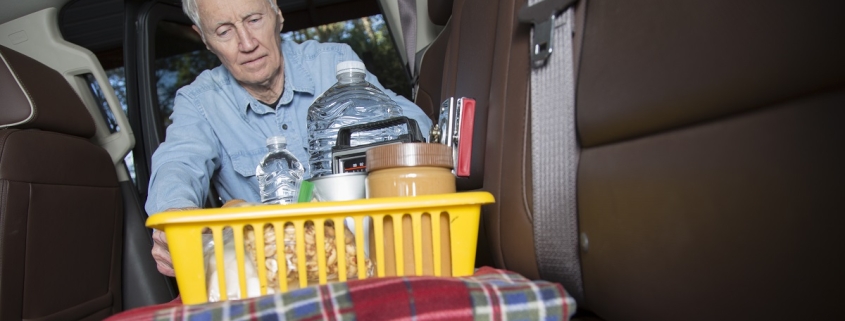Natural Hazard Preparedness: Your To-Do List as a Cancer Patient
Five tasks to complete to keep your health in order when dealing with a natural hazard.
Natural hazards include severe storms, hurricanes, tornadoes and the like. These situations can easily cause anxiety, stress and even fear of what is to come. These feelings may be heightened if you happen to have a disease or illness that requires specialized medications and medical equipment to manage.
If you are finding yourself in a state of panic because Mother Nature decided to send a biological or geological hazard your way, take a moment to breathe and complete the recommended steps to find some peace of mind:
- Notify your physician and care team: Contact your care team to let them know of your situation including if you are planning to evacuate the area. They will also be able to answer any questions you may have about managing your health during the unprecedented time and provide additional care guidance.
- Ensure you have enough medications for several days. Take count of how much medication you have on hand, and if needed, request from your physician some additional days’ worth just in case you happen to be relocated and are unsure of when you can return. You’ll want to have enough medications to last you for at least seven days.
- Make sure you have a list of your current medications. In times of panic, you may forget your medications while hurriedly leaving or may run out. Have a few lists of your medications, the dosage amount, instructions and prescriber name and information available and accessible in at least two places. For example, you may have a list made out on your phone and a paper list in the car or your purse. Be sure to take this list with you no matter where you go.
- Connect with your caretakers. If you rely on a caretaker, such as a family member or friend, who helps you manage your health, reach out to them immediately and request help. Share with them any new learnings from talking to your care team and update them on your current medications and quantity. Additionally, discuss a plan early on in case evacuation is required.
- Have important phone numbers accessible in at least two places. Important numbers for your physician, care team, preferred pharmacy, health plan, caretakers and family should be readily available in at least two places in case of emergencies. You’ll want to keep this information close to you in case you need to relocate.
In addition to the five tasks, listen to and follow the recommendations from state and local officials.







